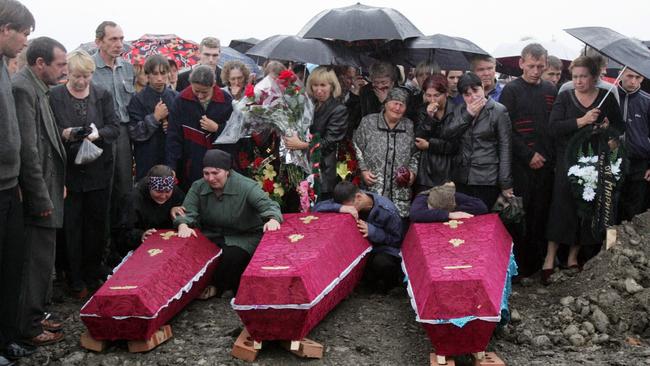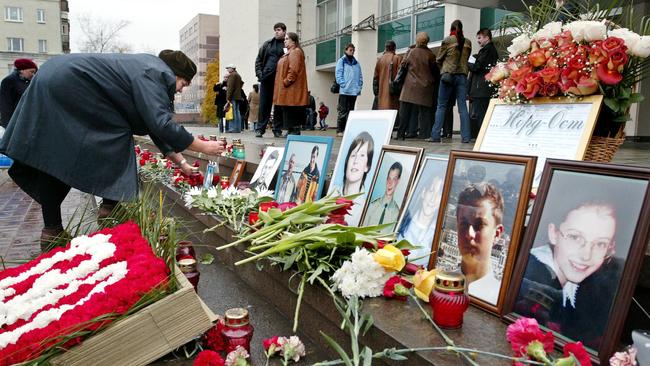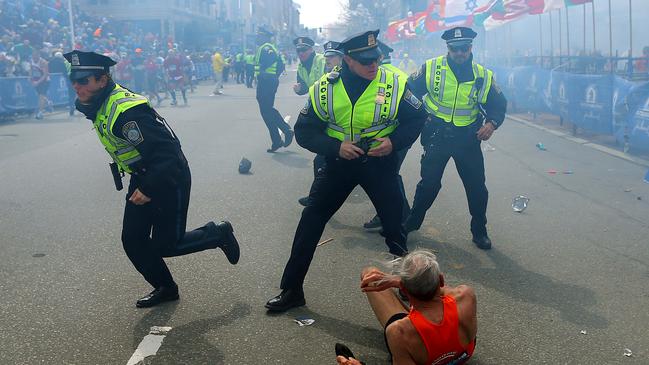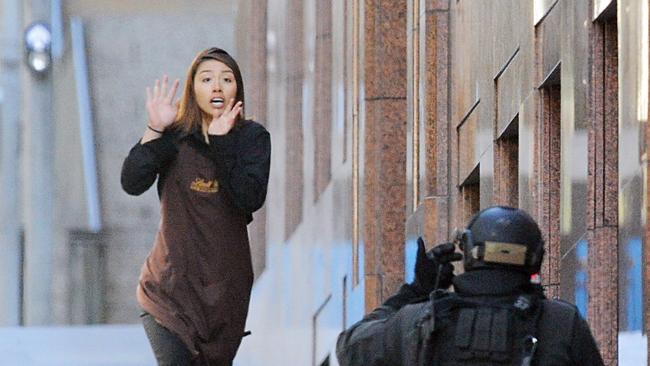September 11: two decades of terror
Terrorism has been a tool of the unscrupulous since time immemorial, from state actors to ‘lone wolves’, in civil wars and insurgencies.

September 11, 2001
Nineteen terrorists hijacked four commercial airliners, crashing two of the planes into the North and South towers of the World Trade Centre complex, and a third into the Pentagon in Arlington. After learning about the other attacks, passengers on the fourth hijacked plane, Flight 93, fought back, and the plane crashed into a field in Pennsylvania. In total the attacks killed 2977 people: 2753 people were killed in New York, 184 people at the Pentagon and
40 people on Flight 93. When the towers were struck, between 16,400 and 18,000 people were in the WTC complex.
December 22, 2001
A man attempted to detonate an explosive device packed into the shoes he was wearing, while on a flight from Paris to Miami. He had travelled to Afghanistan to receive terrorist training, where he was given footwear laden with explosives adapted to be smuggled onto planes, as part of al-Qa’ida’s broader strategy to target aviation.
March 27, 2002
A suicide bombing was carried out by Hamas at the Park Hotel in Netanya, Israel, during the Passover Seder. A Palestinian man disguised as a woman passed security guards and detonated a suitcase containing explosives. Thirty people were killed and 140 were injured.
October 12, 2002
The bombings in the tourist district of Kuta on the Indonesian island of Bali killed 202 people, including 88 Australians. A further 209 people were injured. Members of Jemaah Islamiah, a violent Islamist group, were convicted in relation to the bombings.

October 23, 2002
The Dubrovka Theatre in Moscow was seized by attackers who claimed allegiance to the Islamist militant separatist movement in Chechnya, with 850 hostages. Spetsnaz operators pumped a chemical agent into the building’s ventilation system and raided it. All 40 of the attackers were killed, along with about 130 hostages, due to adverse reactions to the gas.
March 11, 2004
The Madrid train bombings were nearly simultaneous attacks against the commuter train system of Madrid, Spain. The explosions killed 192 people and injured about 2000. The Spanish judiciary found the attacks were directed by an al-Qa'ida-inspired terrorist cell.
September 1, 2004
More than 1100 people were taken hostage when a group of Islamist terrorists occupied a school in the town of Beslan, in the Russian region of North Ossetia. Russian security forces stormed the building with the use of tanks, incendiary rockets and other heavy weapons. At least 330 hostages were killed, including 186 children.
July 7, 2005
Suicide bombers in central London targeted civilians using public transport during the morning rush hour. Four Islamist extremists detonated three bombs aboard Underground trains and a fourth on a double-decker bus. Fifty-two people were killed and over 700 more were injured in the attacks, Britain’s worst terrorist incident since the 1988 Lockerbie plane bombing.
July 11, 2006
Seven pressure-cooker bombs were detonated in 11 minutes on the Suburban Railway in Mumbai, India’s financial capital. 209 people were killed and more than 700 injured. Lashkar-e-Qahhar, a terrorist organisation linked to Lashkar-e-Taiba (LeT), claimed responsibility.
August 14, 2007
Four co-ordinated suicide bomb attacks using a fuel tanker and three cars targeted the Yazidi, a religious minority in Iraq, in the Iraqi province of Ninawa. 500 people were killed and 1500 wounded. US authorities suspected the involvement of al-Qa’ida in Iraq/Islamic State in Iraq.
November 26, 2008
Ten members of Lashkar-e-Taiba, an Islamist militant organisation based in Pakistan, carried out shooting and bombing attacks lasting four days across Mumbai. Transport terminals, cafes, hotels, cinemas and a hospital were targeted. The attacks killed 164 people and wounded 300 more.

April 15, 2013
Two pressure-cooker bombs exploded during the Boston Marathon, 12 seconds and 190m apart near the race’s finish line. The explosion killed three civilians and injured an estimated 264 others. The suspects were identified later that day as Chechen brothers who were motivated by extremist Islamist beliefs and the wars in Iraq and Afghanistan.
May 22, 2013
Lee Rigby of the Royal Regiment of Fusiliers was killed near the Royal Artillery Barracks in Woolwich, London. His attackers hit him with a car before using knives and a cleaver to stab him to death in the middle of the street. The men told passers-by they were avenging the killing of Muslims by the British armed forces.
September 21, 2013
A group of gunmen attacked the Westgate shopping mall, the most expensive shopping centre in Nairobi, Kenya. At least 67 people were killed and more than 175 people were wounded in the mass shooting. The extremist Islamist group al-Shabaab claimed responsibility.

December 15, 2014
A lone gunman entered the Lindt Cafe in Sydney’s CBD and held
18 customers and staff hostage, displaying a jihadist flag. Police stormed the building after a shot was fired. Two hostages were killed and three injured, along with a police officer.
December 16, 2014 Seven militants from the Pakistani Taliban attacked an army-run school in Peshawar, Pakistan, killing 132 children and nine adults. The victims were gunned down in their classrooms.
January 7, 2015
Two brothers armed with assault rifles forced their way into the offices of the French satirical newspaper Charlie Hebdo in Paris, where they killed 11 people and injured 11 others, before killing a policeman outside the building. The gunmen belonged to al-Qa’ida’s branch in Yemen.
June 26, 2015
In a popular tourist resort north of the city of Sousse, Tunisia, a lone gunman, trained by Islamic State in Libya, opened fire after pulling out an assault rifle which he had concealed in a parasol. 38 people were killed, 30 of them British tourists, and another 39 wounded.
October 31, 2015
Metrojet Flight 9268 disintegrated en route from Egypt to Russia when an improvised bomb detonated. The aircraft was carrying 217 passengers and seven crew members. The Islamic State claimed responsibility.
November 13, 2015
Three suicide bombers struck near the Stade de France in Paris, followed by suicide bombings
and mass shootings at cafes, restaurants and a music venue. The attackers killed 130 people, including 89 at the Bataclan theatre. Another 368 people were injured.
March 22, 2016
Three co-ordinated nail bombings occurred in Belgium: two at Brussels Airport in Zaventem,
and one at Maalbeek metro station in Brussels, killing 32 people and injuring more than 300. Islamic State of Iraq and the Levant (ISIL) claimed responsibility for the attacks.
July 1, 2016
Six militants attacked a bakery in Dhaka, killing 22 civilians, 18 of whom were foreigners, making this the worst terrorist attack in Bangladesh’s history. The government blamed Jamaat-ul-Mujahideen, an Islamic fundamentalist organisation that operates in Bangladesh.
July 14, 2016
A 19-tonne truck drove into crowds celebrating Bastille Day on the Promenade des Anglais in Nice, France, killing 86 people and injuring a further 434. Two agencies linked to the Islamic State of Iraq and the Levant (ISIL) claimed the attack was inspired by the organisation.
January 1, 2017
A lone gunman killed 39 and injured 70 more at the Reina nightclub in the Besiktas district of Istanbul, Turkey. ISIL claimed credit for his actions.
March 22, 2017
A car was driven into pedestrians on Westminster Bridge in central London, killing five and injuring 50. After the car crashed, the attacker fatally stabbed an unarmed police officer. ISIL claimed responsibility for the attack.
May 22, 2017
A suicide bombing at Manchester Arena in England, following a concert by American singer Ariana Grande, killed 22 people – including victims as young as eight years old. A further 119 were injured. ISIS later claimed responsibility for the attack.
June 3, 2017
Three men drove a van into pedestrians on London Bridge, killing three. Armed with kitchen knives, they ran to the Borough market area, where they stabbed more people. Eight lost their lives, including two Australians, with a further 48 injured.
August 17, 2017
An Islamist terrorist drove a van into pedestrians for about 550m on La Ramblas in Barcelona, Spain. The attack claimed the lives of 13 victims, and injured a further 130. The driver then fled on foot and hijacked a car by stabbing and killing his 14th victim.
October 14, 2017
A blast caused by a truck bombing in the Somalian capital, Mogadishu, killed more than 350 people and injured another 400. The jihadist group Al-Shabaab is believed to be behind the attack.
October 31, 2017
A rented vehicle struck cyclists and pedestrians in New York, as it was driven down a cycle path by a man who claimed to be inspired by Islamic State. The attack killed 8 people and injured 12. It was the worst act of terror New York had seen since 9/11.
November 24, 2017
As worshippers were gathered for Friday prayers in the al-Rawda mosque, in Bir al-Abed, a suicide bomb was detonated. Attackers linked to Islamic State then opened fire on people trying to flee, resulting in a death toll of 305, with a further 128 people injured.
May 13, 2018
Three suicide attacks targeting churches were carried out in the Indonesian city of Surabaya, in which 13 people lost their lives. A family of six, inspired by ISIS, were behind the wave of blasts, the youngest member being a nine-year-old girl.
July 13, 2018
Southwest Pakistan saw a deadly attack when a suicide bombing was conducted by Islamic State during an election rally for the Balochistan Awami Party, in
the Mastung area of Balochistan province. 149 people lost their lives.
July 25, 2018
A surprise offensive by the Islamic State in the city of Sweida and nearby towns and villages in southwestern Syria claimed the lives of more than 240 people, most of them from the minority Druze sect. Islamic State claimed responsibility.
April 21, 2019
On Easter Sunday suicide bombers with links to Daesh killed at least 253 people and injured some 500 at Catholic churches and top-end hotels across Sri Lanka. The majority of the fatalities were Sri Lankan nationals, with 38 foreigners among the dead.
January 9, 2020
Terrorists from Islamic State in the Greater Sahara on motorbikes and in cars attacked a military outpost at Chinagodrar in Niger near the border with Mali, killing 89 soldiers.
August 2, 2020
Islamic State militants attacked a prison in Jalalabad which held many Islamic State and Taliban members. At least 29 people were killed, including civilians, prisoners, guards and security forces, and another 50 wounded.
November 28, 2020
About 110 civilians, most of whom were peasant farmers, were killed as they worked in rice fields in Koshebe near the northeast Nigerian city of Maiduguri. Islamist terrorists from Boko Haram claimed responsibility.
March 24, 2021
A large band of Islamist insurgents from the Ansar al-Sunna terrorist group overran the city of Palma, in the Cabo Delgado province of Mozambique, killing more than 100 people before government forces regained control days later.
July 19, 2021
An ISIS suicide bomber detonated his vest in a crowded market in the densely populated neighbourhood of Baghdad’s Sadr City in Iraq, killing at least 30 people and injuring another 50.
August 26, 2021
A suicide bombing organised by the Islamic State – Khorasan Province occurred at Hamid Karzai International Airport in Kabul, Afghanistan. At least 183 people were killed.



To join the conversation, please log in. Don't have an account? Register
Join the conversation, you are commenting as Logout